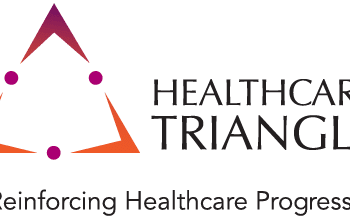Imagine a healthcare system that’s efficient, effective, and accessible to all. That’s the promise of Artificial Intelligence (AI), and venture capitalists like Deena Shakir are at the forefront of making it a reality.
Shakir’s recent investment in Alife, an AI fertility startup, is a prime example. Their $22 million funding round highlights the growing importance of AI in tackling healthcare challenges and revolutionizing traditional practices [1]. As Shakir, a partner at Lux Capital, explains, “technologies like Alife allow us to streamline processes, particularly in areas like fertility treatment, where digital adoption has lagged” [1].
Why AI in Healthcare Now?
The shift towards AI-powered healthcare solutions couldn’t be more timely. Demographic trends point to a rising demand for specialized care. With factors like delayed parenthood and the growing LGBTQ+ community relying on assisted reproductive technologies, innovative approaches are crucial to address evolving needs [1].
This urgency is reflected in the staggering $4.5 trillion the US spent on healthcare in 2022 [2]. Despite AI’s vast potential, the healthcare sector lags behind in adopting these technologies. Fragmented data systems and limited interoperability create significant hurdles [2].
From Reactive to Proactive: AI’s Impact
Simon Gisby, of Deloitte, emphasizes the need for a paradigm shift towards proactive, data-driven healthcare. AI investments are primarily focused on early-stage clinical trials, diagnostic tools, and streamlining administrative tasks. The goal: transition from reactive “sick care” to preventative measures [3].
Noam Solomon, CEO of Immunai, highlights the power of AI in personalizing treatments and improving patient outcomes. Immunai’s groundbreaking work in mapping the human immune system exemplifies the transformative potential of AI in drug discovery and precision medicine [4].
AI’s Reach Across Healthcare
Natural language processing and machine learning are weaving themselves into the fabric of healthcare, from virtual assistants to clinical decision support systems. Deloitte reports that most leading healthcare companies are exploring AI solutions to enhance care and efficiency [3].
Challenges and Considerations
Despite the promising outlook, challenges remain. Escalating healthcare costs, clinician burnout, and workforce shortages persist. Sundeep Peechu, of Felicis Ventures, advocates for a shift towards preventive healthcare to address these issues [5].
Dr. Taha Kass-Hout, of GE Healthcare, echoes this sentiment, emphasizing AI’s potential to revolutionize treatment outcomes through predictive analytics. Collaboration between industry stakeholders and AI innovation is paving the way for more personalized interventions [6].
Investing for Impact
Kingsley Ndoh’s Hurone AI exemplifies the importance of contextually relevant solutions. By leveraging AI communication tools, Hurone AI aims to improve patient engagement and treatment adherence, particularly in underserved communities [7].
The Amazon Web Services (AWS) Health Equity Initiative’s commitment to addressing healthcare disparities through AI underscores the growing recognition of technology’s role in promoting health equity [8].
Investing Responsibly: The Road Ahead
As the healthcare industry embraces AI, stakeholders must ensure ethical and effective deployment. Understanding the complexities of healthcare delivery and leveraging AI as a force for positive change are key.
Ready to Invest? Consider These Areas:
- Early-stage clinical trials and diagnostics: Companies like Immunai are accelerating drug discovery with AI, paving the way for personalized medicine [4].
- Streamlining administrative tasks: Businesses like Hurone AI are using AI communication to improve patient engagement, freeing up healthcare professionals’ time [7].
- Precision medicine and personalized care: Companies like Alife are personalizing fertility treatments using AI, catering to evolving healthcare needs [1].
- Virtual assistants and chatbots: AI-powered virtual assistants can answer questions, schedule appointments, and even offer preliminary symptom analysis, improving patient experiences and outcomes.
- AI-powered medical imaging and diagnostics: AI algorithms can analyze medical images with high accuracy, assisting doctors in early and accurate diagnoses.
By understanding the evolving landscape of AI in healthcare and focusing on companies tackling major challenges, you can position yourself for potentially rewarding investments while contributing to a healthier future.
[1] CNBC: Fertility Startup Alife Lands $22 Million to Make Getting Pregnant Easier with AI (link to CNBC article on fertility startup Alife)
[2] Centers for Medicare & Medicaid Services: National Health Expenditure Data (link to Centers for Medicare & Medicaid Services on National Health Expenditure Data)
[3] Deloitte: Healthcare and Life Sciences – The AI Advantage (link to Deloitte article on Healthcare and Life Sciences – The AI Advantage)
[4] Immunai: About Us (link to Immunai website about us)
[5] Felicis Ventures: Sundeep Peechu (link to Felicis Ventures website about Sundeep Peechu)
[6] GE Healthcare: Dr. Taha Kass-Hout (link to GE Healthcare website about Dr. Taha Kass-Hout)
[7] Hurone AI (link to Hurone AI website)
[8] Amazon Web Services: Health Equity Initiative (link to Amazon Web Services Health Equity Initiative website)
Also read: Unlocking the Secret Link Between Oral Health and Brain Function: A Must-Read Guide!

















